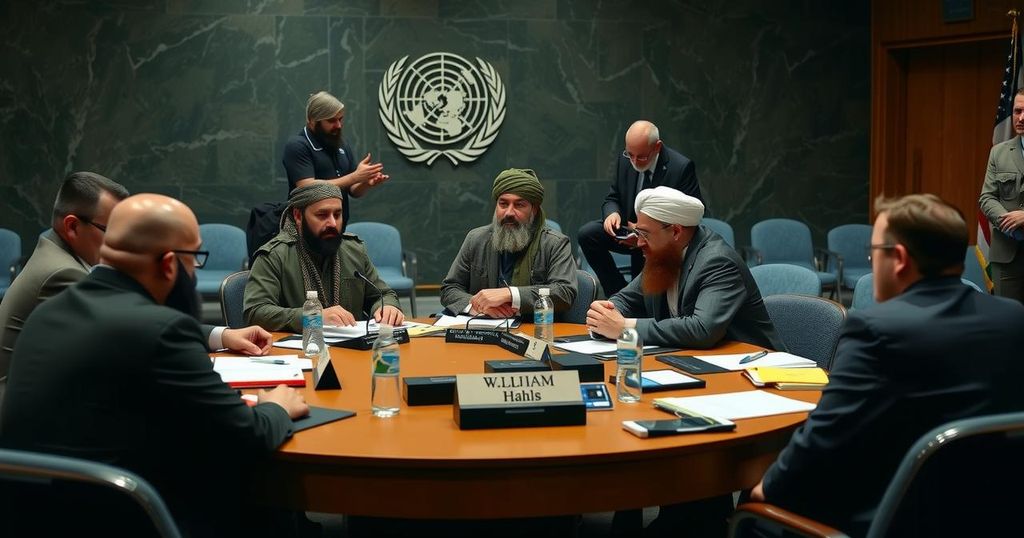Afghanistan Seeks Climate Aid at COP29 Amidst Ongoing Challenges
Afghanistan’s first attendance at the UN climate talks since the Taliban’s takeover focused on securing aid for climate change impacts. Led by Matiul Haq Khalis, the delegation emphasized the need for international support while raising concerns about human rights issues. The group aims to officially participate in future climate summits, advocating for climate justice for vulnerable Afghan communities.
Baku (AFP) – In a significant development, Afghanistan’s first official attendance at the UN climate talks since the Taliban’s takeover in 2021 has been marked by a quest for international cooperation and climate finance. Leading a three-member delegation, Matiul Haq Khalis, director general of the National Environmental Protection Agency (NEPA), expressed Afghanistan’s hope to secure aid to combat the severe impacts of climate change during COP29 in Azerbaijan. Khalis emphasized that the Taliban-led government, although not internationally recognized, should be allowed to participate in discussions concerning climate change, particularly as Afghanistan is among the nations most vulnerable to its effects. His delegation is in Baku as guests, aiming to deliver a message of the universal nature of climate issues, which transcend national boundaries. Khalis remarked, “I really appreciate” the Azerbaijani government’s hospitality in facilitating their attendance. The urgency of the situation in Afghanistan is underscored by rising challenges like drought, floods, and agricultural degradation, which threaten the livelihoods of the population, 80% of whom rely on farming. While international support in the form of climate finance is deemed critical to support the Afghan people, the potential controversy surrounding the Taliban’s human rights record, particularly regarding women’s rights, looms over the discussions. Khalis acknowledged that climate projects can enhance women’s roles, but activists have called for respect for fundamental rights to ensure equitable support. As the Afghan delegation seeks access to climate funds, they aim to participate officially in COP30 in Brazil next year, underscoring their commitment to address climate justice for vulnerable communities. Khalis asserted, “This is the right of the people, the climate justice for the people that’s actually most vulnerable communities to the impact of climate change.” Given the promises made by developed countries to provide climate finance, Khalis insisted that Afghanistan should also benefit from such initiatives, framing it as an essential expectation from the ongoing negotiations at COP29.
The participation of Afghanistan in COP29 marks a critical moment for the Taliban-led government since its establishment in 2021. The global community has been concerned about how the Taliban will engage in these essential climate conversations, particularly given the human rights issues exacerbated since their return to power. Afghanistan, facing severe threats from climate change, is among the most susceptible nations, suffering from extreme weather events and deteriorating agricultural conditions. The Afghan delegation’s hope to attain climate finance reflects the urgency for support, not just for environmental issues but also for humanitarian considerations relating to the vulnerable populations in the country.
In conclusion, Afghanistan’s participation in the UN climate talks is pivotal for both international recognition of the Taliban government and for securing urgent climate finance necessary for addressing the dire environmental challenges facing the nation. The delegation’s emphasis on climate justice and the need for support underscores the interplay between environmental and humanitarian concerns. As discussions unfold, the global community’s response will be critical in shaping the future of Afghanistan in the context of climate change and human rights.
Original Source: www.rfi.fr




Post Comment